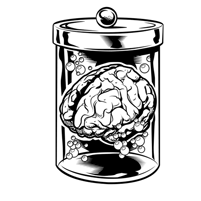Maybe there are people out there who do not know what Down Syndrome is, although at 1 per 691 births it is the most common of chromosomal abnormaities.
I still remember my next door neighbor, little “Stevie,” who was the youngest in a large family (seven children as I recall) so mother may have been a bit advanced in age when she had him. I thought of him then (I was not over six or seven) as a sort of human stuffed animal, as he loved hugging and was profoundly retarded, able to do little on his own. I learned even then that people said what such children lacked in intelligence (and muscle tone and
Read more on Down Syndrome — Human Choice Doesn’t Catch Up With Technology…
Filed under Down Syndrome by on May 27th, 2013. Comment. ![]()
I have heard just a little too much about suicide among the religious — from patients, from others, now this; to the son of a published pastor who gave an invocation for the Obama folks.
I really do feel for the family, for death of the younger generation before the older one by any means including suicide by his own hand, is a horrible thing that is anti-nature and has a profound wrongness, a too-deep effect on all involved.
I was way back in residency when I attempted to gather some statistics on the association between religion and psychiatry in Kansas, sending a basic questionnaire on feelings about mental illness (and referral patterns to mental health professionals) to a big list of Wichita area “religious professionals.”
First, I had already made the assumption from the French part of my education that not too many people actually went to church, but none of them seemed to much care about mental health professionals.
In Kansas, with the world’s worst statistics (no major support on this from my
Filed under Religion by on May 1st, 2013. Comment. ![]()
Topic: Research Fraud
For someone who has been a part of many clinical trials, I will be the first to admit that I have very little training in research design or statistics. Oh, the hours I’ve spent surreptitiously curled up on the sofa of a doctors’ lounge or my own apartment, thinking that somebody paid somebody a lot of money to write “science” so I could figure out how and why I would know things. It pretty much worked. There were a few mentions of statistics at my delightfully thorough prep school, but there was not so much as a word at medical school. The research types were always hanging around medical school settings — their brains rented and services bought by the medical side of things — as they did not make much money. We did receive some wonderful instruction from clinicians as to how to evaluate research literature and decide how to apply it to our practices.
I have a vivid memory of an endearing shy and spindly instructor during a course required for incipient biologists at Boston University. He had Jewish afro hair, coke bottle bottom glasses, and a more than passing resemblance to a young Woody Allen. Oh, how he despaired that we were mostly going to be money-chain doctors as opposed to truth-chasing scientists. I remember that once, and only once, did he reach fiery intensity in that class. “Nothing will be published unless the probability that it actually shows what it is supposed to show is greater than 19 out of 20, that means p>.05. But nobody wants to admit what that really means.” Oh, how silent we were, on the edge of our chairs. Read more on Research Fraud Isn’t Reported To The Public…
Filed under Government, Research by on Nov 14th, 2012. Comment. ![]()
Seventh grade science class at my prep school featured some basic knowledge and definitions that had to be memorized. I aced it, of course, but I don’t think anyone else even liked it.
 Over the course of my education (many, many years) I had a lot of science classes. And after I went to medical school, I was all scienced-up. Some of the classes were simply a waste of time – things required by law but not taken seriously by the school. Others were fascinating and formed my blossom love of science that led me to study medicine.
Over the course of my education (many, many years) I had a lot of science classes. And after I went to medical school, I was all scienced-up. Some of the classes were simply a waste of time – things required by law but not taken seriously by the school. Others were fascinating and formed my blossom love of science that led me to study medicine.
But I did get a lot of basics in that seventh grade class. Things like definitions. Words like “solute” and “solvent” held no mysteries for me. Water was, of course, the greatest solvent ever invented, but there were others. Like when we sent clothes to the dry cleaners, we had to remember the rhyme “Your best bet is carbon tet” a reference to carbon tetrachloride (CCl4). Funny little doggerel, I know, but it was even on the final test.
Carbon tetrachloride was not part of the chemistry of living things, so it is not terribly much of a surprise that I haven’t heard much about it until today. I also recognize the names of its close cousins; trichloroethylene and perchloroethylene.
Sure sounds as if carbon tet and some related solvents in paints and adhesives are related to Parkinson’s Disease.
Filed under Parkinson's Disease by on Nov 23rd, 2011. Comment. ![]()
I was a 2nd year resident in neurological surgery when there was news that a single neuron could link with a single computer wire and messages could travel from the one to the other. Nobody in my doctors’ lounge seemed to care.
 I remember seeking out a psychologist who had a fairly high tech research background, to see if he was anywhere nearly as excited as I was. To say “no” is a gross understatement.
I remember seeking out a psychologist who had a fairly high tech research background, to see if he was anywhere nearly as excited as I was. To say “no” is a gross understatement.
He told me about an idea which long before that had been both funded and forgotten. The idea had been one of a prosthetic frontal lobe. Frontal lobe of the brain, among other things, tells people what is “appropriate” socially. The one example I will never forget is the physician who (inappropriately) peed in his pants on rounds, and ended up having a frontal lobe tumor. So the idea was that somebody who had a hunk of frontal lobe excised to get rid of the tumor, or presumably some other kind of illness, could have a teency-tiny computer to hold in their hand that would do some frontal lobe kinds of things that they no longer could.
The attempt to develop this happened on the east coast, presumably sometime after Noah’s flood, and the funding dried up just like that great flood did.
Of course, another possibility is that men do not much care where and when they pee. I doubt this, since I had a patient in Oklahoma who had purchased a fair amount of real estate in his life and thought it necessary and appropriate to “mark” it in the same way a dog marks his territory. Yes, it involved peeing in public, but the fellow had no known frontal lobe pathology at the time.
Ah, those Oklahoma men. Read more on Maybe Those People Who Annoy Can Get A Prosthetic Brain…
Filed under Research by on Oct 6th, 2011. Comment. ![]()
One of my Frequently Asked Questions is “why do you hate prescription drugs so much?”
And the answer is, I DON’T. Not at all. I have used, and will continue to use, prescription drugs whenever they are the best treatment for an individual.
What I DO hate is the way they are mis-used, and the way some companies push their drugs for inappropriate purposes, or in dosages that are harmful when they could be helpful in (usually lower) doses. Read more on A Remarkable Medicine And Its Champion…
Filed under prescription drugs by on Apr 29th, 2011. Comment. ![]()
On A Cat Aging
by Sir Alexander Gray
He blinks upon the hearth-rug
And yawns in deep content,
Accepting all the comforts
That Providence has sent.Louder he purrs and louder,
In one glad hymn of praise
For all the night’s adventures,
For quiet, restful days.Life will go on forever,
With all that cat can wish;
Warmth, and the glad procession
Of fish and milk and fish.Only – the thought disturbs him –
He’s noticed once or twice,
That times are somehow breeding
A nimbler race of mice.
I loved Merlin – King Arthur’s court wizard — when I was a kid and that was just about the time that Disney came out with “The Sword in the Stone.”
WOW – nearly 50 years ago!
Later I was to love the Arthurian legend in many deep and symbolic ways — love it so much that for a long time I kept a light-up, plug-in sword which was (actually, fairly easily) removed from a plastic pseudo-crystalline rainbow light-shooting stone. Doing so didn’t make me a queen of anything, though.
It is almost impossible, I think, to be human and anything more than partially literate without knowing the splendor of the Arthurian legend.
Fast forward to the present, and I am a wizard in my own way – a doctor. I wanted every patient to have the smiling sense of the Arthurian splendor that I had when I pulled that ersatz sword from the ersatz stone. Most of them did, until that piece, like many dear to me, was lost in a series of moves.
Filed under Aging by on Mar 9th, 2011. 1 Comment. ![]()
Even I – a supposed expert — have only scraps of information on this drug.
I remember a wonderful professor in medical school, who introduced me to her mother, who had some problems with dementia. Mother had improved greatly, it seemed, in a loving homey institution on a medication called “Centrophenoxine” — which I have since learned is also called “meclophenoxate” or “Lucidryl.” Read more on Mostly Harmless “Smart Drug” — But No Endorsement (Yet)…
Filed under Alzheimer's Disease by on Jan 12th, 2011. Comment. ![]()

Newtown, CT and the American Tradition of School Shootings
Christmas may have provided a break in the mourning for some in Newtown, CT. That’s good. Too much mourning is not a good thing.
My heart goes out to those of any other minority religions, for I do not know who or how they are, or if their international communities have reached out to them in any way. America is neither Christian nor homogeneous. Failure to live up to the “freedom of worship” part of the Franklin D. Roosevelt and Normal Rockwell Four Freedoms is just another way we have failed, as a nation, to live up to expectations.
My heart goes out to anyone who has not felt support from the religious
Read more on Newtown, CT and the American Tradition of School Shootings…
Tags: adolescent males, commentary, editorial, Newtown CT, Parents, psychology, Religion, research, school shooting, survivor guilt, traditions, tragedy.
Filed under Violence by admin on Dec 29th, 2012. Comment.